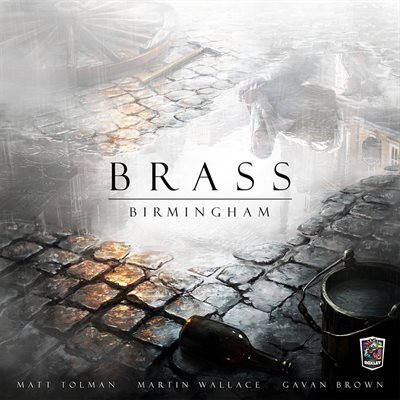Connect here
-
- Some services are not accessible on smartphone
- Open a session
- My Account
- Customer Service
-
Products
-
Pre-orders
Pre-orders
- Featured Pre-orders
- All Pre-orders
- 2024 - Week 47 (Nov. 18)
- 2024 - Week 46 (Nov. 11)
- 2024 - Week 45 (Nov. 4)
- 2024 - Week 44 (Oct. 28)
- 2024 - Week 43 (Oct. 21)
- 2024 - Week 42 (Oct. 14)
- 2024 - Week 41 (Oct. 7)
- 2024 - Week 40 (Sept. 30)
- 2024 - Week 39 (Sept. 23)
- 2024 - Week 38 (Sept. 16)
- 2024 - Week 37 (Sept. 9)
- 2024 - Week 36 (Sept. 2)
- 2024 - Week 35 (Aug. 26)
- 2024 - Week 34 (Aug. 19)
- 2024 - Week 33 (Aug. 12)
- 2024 - Week 32 (Aug. 5)
- 2024 - Week 31 (July 29)
- 2024 - Week 30 (July 22)
- 2024 - Week 29 (July 15)
- 2024 - Week 28 (July 8)
- 2024 - Week 27 (July 1)
- 2024 - Week 26 (June 24)
- 2024 - Week 25 (June 17)
- 2024 - Week 24 (June 10)
- 2024 - Week 23 (June 3)
- 2024 - Week 22 (May 27)
- 2024 - Week 21 (May 20)
- 2024 - Week 20 (May 13)
- 2024 - Week 19 (May 6)
- 2024 - Week 18 (Apr. 29)
- 2024 - Week 17 (Apr. 22)
- 2024 - Week 16 (Apr. 15)
- 2024 - Week 15 (Apr. 8)
- 2024 - Week 14 (Apr. 1)
- 2024 - Week 13 (Mar. 25)
- 2024 - Week 12 (Mar. 18)
- 2024 - Week 11 (Mar. 11)
- 2024 - Week 10 (Mar. 4)
- 2024 - Week 9 (Feb. 26)
- 2024 - Week 8 (Feb. 19)
- 2024 - Week 7 (Feb. 12)
- 2024 - Week 6 (Feb. 5)
- 2024 - January
- 2023 - Preorders
- 2022 - Preorders
- New Releases
- Fantasy Flight
- Board Games
- Miniature Board Games
- Tabletop Miniatures
- Collectible Card Games
- Books
- Puzzles
- Roleplaying Games
- Accessories
- Clearance
- Displays
- Decor
- Toys
- Plushies
- All
-
Pre-orders
-
Accessories
- Publishers
- New Releases
- Pre-orders
- Magic Deals
- Clearance
- Contact Us
- FAQ
- Application Request
- Lion Rampant Imports>
- Products>
- Board Games>
- Strategy Games>
- Brass: Birmingham (No Amazon Sales)
Brass: Birmingham (No Amazon Sales)
Product Code: ROX402
UPC Code:9781988884042
Brass: Birmingham is an economic strategy game sequel to Martin Wallace' 2007 masterpiece, Brass. Birmingham tells the story of competing entrepreneurs in Birmingham during the industrial revolution, between the years of 1770-1870.
As in its predecessor, you must develop, build, and establish your industries and network, in and effort to exploit low or high market demands.
The game is played over two halves: the canal era (years 1770-1830) and the rail era (years 1830-1870). To win the game, score the most VPs. VPs are counted at the end of each half for the canals, rails and established (flipped) industry tiles.
Birmingham features dynamic scoring canals/rails. Instead of each flipped industry tile giving a static 1 VP to all connected canals and rails, many industries give 0 or even 2 VPs. This provides players with the opportunity to score much higher value canals in the first era, and creates interesting strategy with industry placement.
New "Sell" system
Brewing has become a fundamental part of the culture in Birmingham. You must now sell your product through traders located around the edges of the board. Each of these traders is looking for a specific type of good each game. To sell cotton, pottery, or manufactured goods to these traders, you must also "grease the wheels of industry" by consuming beer. For example, a level 1 cotton mill requires one beer to flip. As an incentive to sell early, the first player to sell to a trader receives free beer.
Birmingham features three all-new industry types:
Brewery - Produces precious beer barrels required to sell goods.
Manufactured goods - Function like cotton, but features eight levels. Each level of manufactured goods provides unique rewards, rather than just escalating in VPs, making it a more versatile (yet potentially more difficult) path vs cotton.
Pottery - These behemoths of Birmingham offer huge VPs, but at a huge cost and need to plan.
Increased Coal and Iron Market size - The price of coal and iron can now go up to $8 per cube, and it's not uncommon.
Brass: Birmingham is a finely brewed sequel to one of history's most industrial economic games. It offers a very different story arc and experience from its predecessor. Many of the tried and true strategies of the original are no longer as powerful as they once were, and other interesting new strategies are waiting for you to discover.
As in its predecessor, you must develop, build, and establish your industries and network, in and effort to exploit low or high market demands.
The game is played over two halves: the canal era (years 1770-1830) and the rail era (years 1830-1870). To win the game, score the most VPs. VPs are counted at the end of each half for the canals, rails and established (flipped) industry tiles.
Birmingham features dynamic scoring canals/rails. Instead of each flipped industry tile giving a static 1 VP to all connected canals and rails, many industries give 0 or even 2 VPs. This provides players with the opportunity to score much higher value canals in the first era, and creates interesting strategy with industry placement.
New "Sell" system
Brewing has become a fundamental part of the culture in Birmingham. You must now sell your product through traders located around the edges of the board. Each of these traders is looking for a specific type of good each game. To sell cotton, pottery, or manufactured goods to these traders, you must also "grease the wheels of industry" by consuming beer. For example, a level 1 cotton mill requires one beer to flip. As an incentive to sell early, the first player to sell to a trader receives free beer.
Birmingham features three all-new industry types:
Brewery - Produces precious beer barrels required to sell goods.
Manufactured goods - Function like cotton, but features eight levels. Each level of manufactured goods provides unique rewards, rather than just escalating in VPs, making it a more versatile (yet potentially more difficult) path vs cotton.
Pottery - These behemoths of Birmingham offer huge VPs, but at a huge cost and need to plan.
Increased Coal and Iron Market size - The price of coal and iron can now go up to $8 per cube, and it's not uncommon.
Brass: Birmingham is a finely brewed sequel to one of history's most industrial economic games. It offers a very different story arc and experience from its predecessor. Many of the tried and true strategies of the original are no longer as powerful as they once were, and other interesting new strategies are waiting for you to discover.
- Designer : Gavan Brown, Matt Tolman, Martin Wallace
- Number of players : 2 - 4
- Playing time : 120 - 180
- Recommended ages : 14+
- Language : EN


